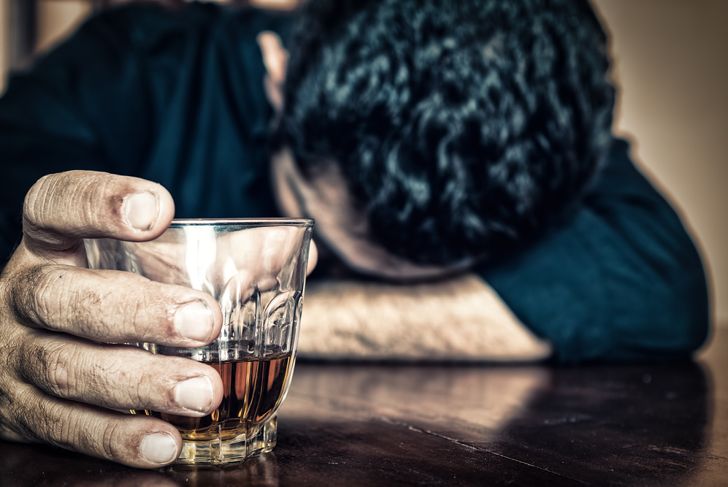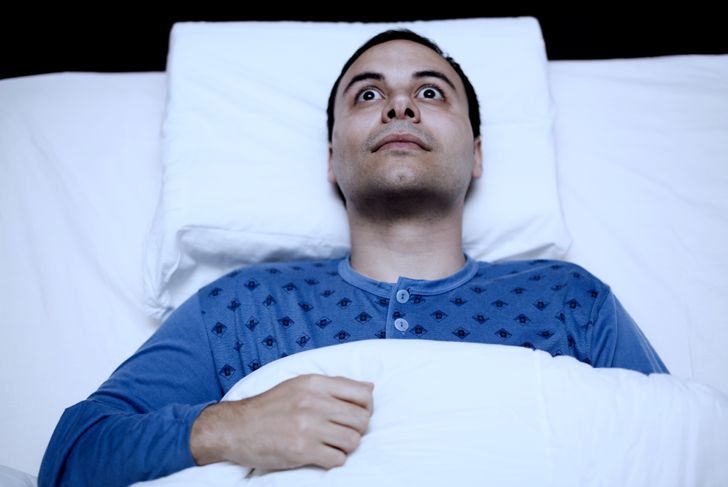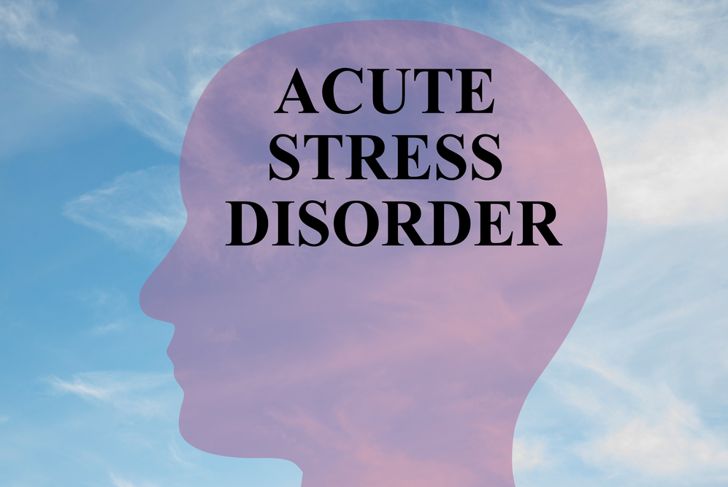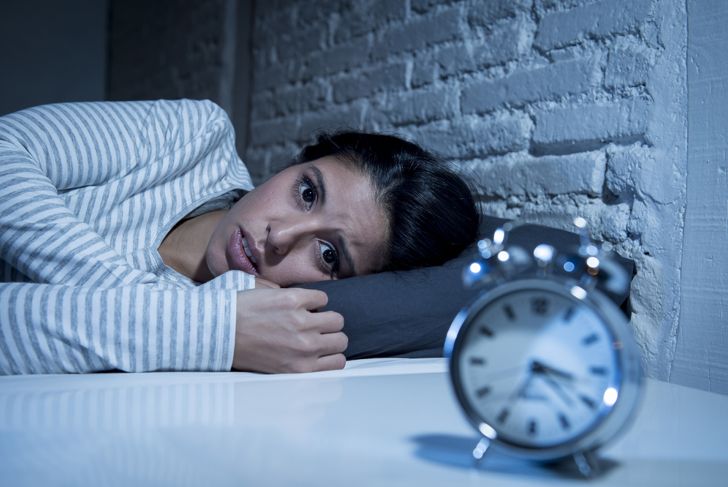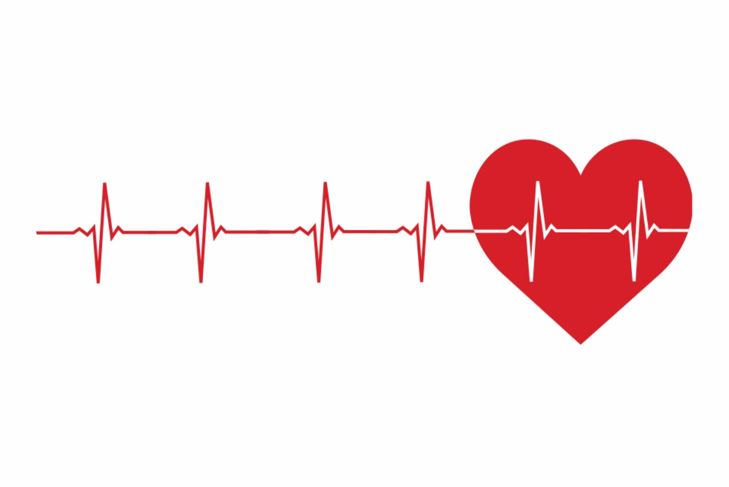There are good reasons to believe that modern urban life contributes to more stressful living environments. Yet there is a world of difference between the levels of stress most people can handle and the acute stress disorder that mental health specialists need to treat. Sometimes a sudden catastrophe, for example, the death of a dear one, triggers this illness. Personality and emotional vulnerability help determine which individuals develop acute stress disorder and its severity. Symptoms might not appear until a month has passed from the trigger event. Fortunately, this disorder usually does not continue beyond a month, and sometimes it only lasts a couple of days. Counseling and psychotherapy aid recovery.
Difficulty Getting to Sleep
Worries over an important business meeting, a flight to catch or some family argument are a few typical insomnia causes. If you recently experienced a traumatic event, the emotional impact also often disturbs sleep. Maybe you play over the event in your mind and ask yourself if it could have turned out differently if you had acted in this way or that way. These feelings are perfectly natural, but you cannot continue to function if you are efficiently deprived of sleep night after night. Lack of rest invariably exacerbates acute stress disorder since it drains the body of the physical energies that help it to cope with life’s challenges. It also weakens the immune system, and this brings new health issues in its wake.
Drug or alcohol abuse
Certain individuals might respond to the emotional pain of acute stress disorder by turning to drink or drugs for relief. Individual personality makeup and social circumstances increase the likelihood of this kind of response. Someone with a history of drug or alcohol abuse is also more likely to slip back into old habits. We all know that while this behavior may bring short-term stress relief the pain soon returns in an even more severe form. Family and friends need to keep a close eye on substance abusers. For advice on how best to help this person, consult with the doctors and social workers who understand acute stress disorder.
A lack of motivation
Someone who is suffering from acute stress disorder may lose their motivation to get on with their lives. This lack of motivation takes various forms. Perhaps they find it hard to get out of bed, or it might become very difficult for them to take an interest in their studies or work. Do not underestimate their emotional pain. Genuine sympathy and understanding do help, but family and close ones frequently lack the resources to deal with this situation unaided. Support from professional mental health workers makes a key difference.
Withdrawal from society
People experiencing acute stress disorder often desire to cut themselves off from close relationships and their regular social life. Nobody expects someone who just witnessed a traumatic event to turn up as usual at that birthday party or concert. They need time to adjust to the new reality. It is often healthier for them to spend some time alone in such situations. The problem occurs if the self-imposed social isolation continues much beyond the normal type it takes to recover.
Quarrelsome or aggressive
Family and friends ought to understand that somebody with acute stress disorder might become much more argumentative or even aggressive. They seem unable to appreciate the damage their outbursts cause to personal relationships. Who knows how many separations and divorces occur after a mental health problem makes one of the parties into such unpleasant company. These personality changes are not permanent. The patient can get through this emotional crisis and return to their old nature with the right help.
Suffers from nightmares
Nobody worries excessively after an occasional nightmare, but if with acute stress disorder these nightmares could become more frequent. The mind retains images of the disturbing event or scene they experienced, and this provides material for nightmares. It might reach a point where they dread falling asleep out of fear of these terrifying dreams. Psychotherapy can help this person rid him or herself of these “demons” and manage once again to get an undisturbed sleep.
Loss of memory
The ability to block out painful memories helps people overcome traumas and resume their regular lives. This mental power is an essential inbuilt trauma recovery tool, but acute stress disorder sometimes takes this process too far. In addition to blocking out details of the traumatic event, the patient forgets essential personal information. Memory should return to normal when the disorder ends, but meanwhile, this situation causes a great deal of mental distress to all concerned.
Regular headaches
Some acute stress disorder sufferers complain of regular headaches. Even though this is a relatively common symptom, it sometimes warrants further medical investigation. Headaches have many possible causes. If they continue for more than a day or so, it is highly recommended to get a checkup. Probably these headaches are a symptom of the trauma this person experienced or witnessed, but it is much better to stay on the safe side and rule out other possibilities.
Heart beating much faster than usual
When the doctor examines someone with acute stress disorder, it comes as no surprise to discover that the patient’s heart beats more rapidly than usual. They have no grounds for concern in the vast majority of cases. Once they recover from this ordeal, their heartbeat returns to normal. If this patient has a history of heart disease, the doctor might want to monitor their heart health and perhaps prescribe medications.
Feeling sick
Nausea is another common sign of acute stress disorder. The shock the patient experiences easily causes physical upsets alongside emotional distress. Although being physically sick is extremely unpleasant it usually only poses a low health risk. However, if repeatedly feel sick it is a sign of a chronic and reoccurring issue that requires medical attention. An exception occurs if this person fails to replenish the liquids the body loses when they vomit. To avoid serious health issues they must remain well hydrated, and this requires them to drink water regularly.

 Home
Home Health
Health Diet & Nutrition
Diet & Nutrition Living Well
Living Well More
More
